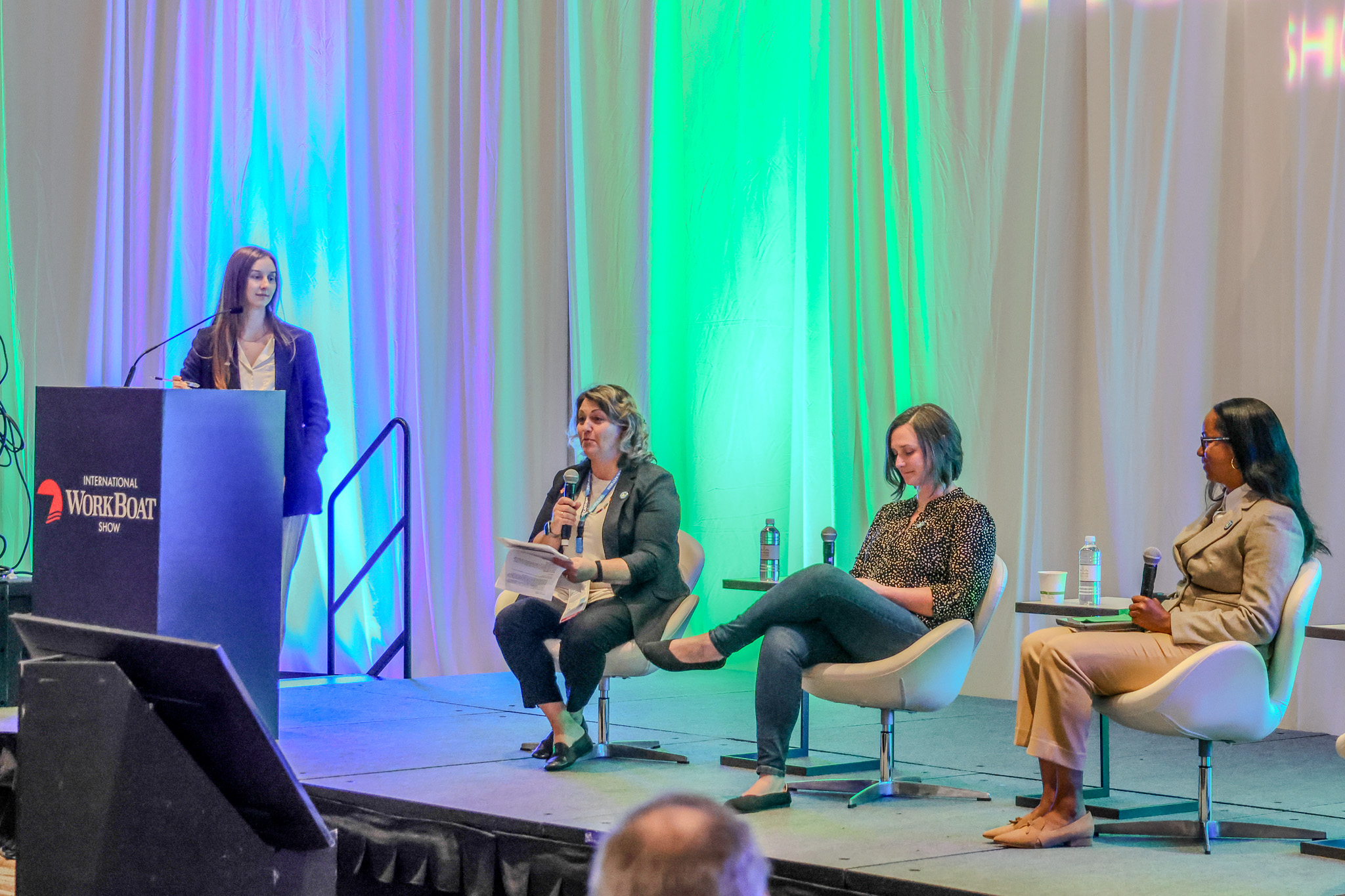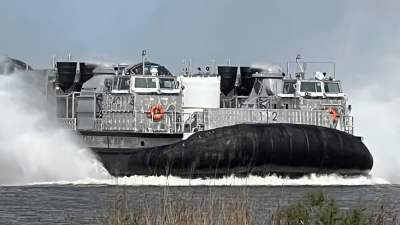The commercial marine industry, like nearly every other sector across the globe, is grappling with its contributions to climate change and the regulations that have recently been developed to try and curb those carbon emissions. According to the Department of Energy, the maritime industry is responsible for roughly 3% of total greenhouse gas emissions globally every year.
The idea of embracing further sustainability within the commercial marine industry was the topic of a session Wednesday afternoon at the International WorkBoat Show entitled "Paving the Way to Sustainable Shipyard and Port Operations." The panel discussion included professionals who are working on these problems on a daily basis. Moderated by Brittney Blokker, program manager, Green Marine, the panel featured Jan Allman, vice present and general manager, Fincantieri Bay Shipbuilding; Emily Federer, MSPH, ENV SP, sustainability manager, Port of New Orleans; and Jeri Shull, VP, corporate environmental, Arcosa.
In this mission to bring more sustainable efforts to the industry, Blokker points out in the session’s opening remarks that shipyards and ports in particular are target areas for meeting these goals.
“Ports and shipyards are uniquely positioned to combat climate change due to their strategic role in global trade, while also being deeply ingrained in their local community,” she said. “Their capacity to develop infrastructure, adopt cleaner technologies, and engage multiple stakeholders will allow them to drive sustainable initiatives that have both local and global impacts.”
One of the topics hit on in this discussion was how organizations can begin down the path toward sustainability, an area on which Shull was able to touch given Arcosa’s relative youth in the industry. She points out that they are still figuring things out as they go, of course, but pointed to people and data as the main drivers toward their sustainable decision-making, leaning heavily on committees specifically formed to address these issues.
Shull said, “Our ESG committees, which are built from our executives, our leadership, and our champions across our enterprises, are the ones that drive the knowledge throughout our enterprise, understanding what our initiatives are, what we're trying to do, and build up the knowledge of our personnel.”
On the other side of the coin, Federer spoke from the perspective of a significantly older organization, with the Port of New Orleans celebrating over 130 years as a recognized organization in Louisiana. Despite that experience, she notes that they are still relatively new in this area with their ESG program having just been established in 2013.
From her perspective, one of the biggest challenges has been getting together the necessary data to track their progress given the large scale of their operations, covering three parishes in the state. In particular, she discussed the challenges around gathering scope three data, which is the indirect emissions of the port coming from tenants, ships, and vehicles driving through the site.
For organizations that have been doing this work for a long time relative to some of their peers, other challenges can arise. Allman talks about one of those challenges within Fincantieri Bay Shipbuilding, which can be general fatigue around the sustainability and ESG movement. Blokker pointed out in a question that these ideas are constantly being redefined and shifted every few years, and for those who are consistently working within the space that can be tiring and eventually become a hindrance on that work being done.
To counteract that, Allman explained that they are big believers that people at all levels are going to be the driving force of these efforts, and that they need to consciously think up ways to keep spirits alive and “try to make it a bit of fun.” To do that, she believes that the key is tapping into the creative potential of the team members. In the example of Fincantieri Bay Shipbuilding, they leaned on their Wisconsin culture of fishing and hunting, creating annual themes based around local game and giving out prizes to team members who best exemplified these targets.
Ultimately, the big takeaway from the discussion was the importance of data as well as industry partnerships to maximize growth toward sustainability goals. Shull hammered home the importance of data to Arcosa as a young company, noting the importance of knowing where they are today before they can figure out where they need to go in the future. In order for that value to be maximized, transparency around that data is extremely important.
Of course, all of this work requires funding as well, and grants came up many times as the way to ensure organizations have the funds to complete these projects. The Port of New Orleans, for example, has received millions in grant funding this year, and Federer said that wouldn’t be possible without partnerships.
“For just this year, Port of New Orleans, in my department, we've been awarded over $8 million in grants for sustainability programs, and that is not possible without our partnerships,” she said.





